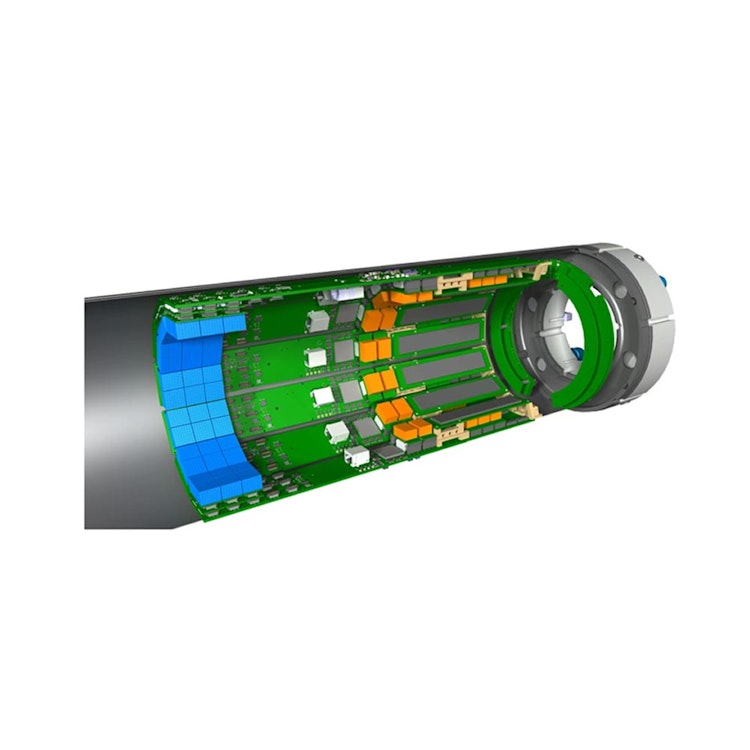
SAFIR-I: first NEMA NU 4-2008-based performance characterization
Background: Small Animal Fast Insert for MRI detector I (SAFIR-I) is a novel Positron Emission Tomography insert for a 7 T Bruker BioSpec 70/30 Ultra Shield Refrigerated Magnetic Resonance Imaging (MRI) system. It facilitates truly simultaneous quantitative imaging in mice and rats at injected activities as high as 500 MBq. Exploitation of the resulting high count rates enables quick image formation at few seconds per frame. In this investigation, key performance parameters of SAFIR-I have been determined according to the evaluations outlined in the National Electrical Manufacturers Association (NEMA) Standards Publication NU 4-2008 (NEMA-NU4) protocol. Results: Using an energy window of 391 to 601 keV and a Coincidence Timing Window of 500 ps, the following performance was observed: The average spatial resolution at 5 mm radial ofset (Full Width at Half Maximum) is 2.54 mm when using Filtered Backprojection, 3D Reprojection reconstruction. For the mouse- and rat-like phantoms, the maximal Noise-Equivalent Count Rates (NECRs) are 1368 kcps at the highest tested average efective concentration of14.7 MBq cc−1 , and 713 kcps at the highest tested average efective concentration of1.72 MBq cc−1 , respectively. The NECR peak is not yet reached for either of these cases. The peak sensitivity is1.46 %. The Image Quality phantom uniformity standard deviation is 4.8 %. The Recovery Coefcient for the 5 mm rod is(1.08 ± 0.10). The Spill-Over Ratios are (0.22 ± 0.03) and(0.22 ± 0.02), for the waterand air-flled cylinder, respectively. An accuracy of 4.3 % was achieved for the quantitative calibration of reconstructed voxel values. Conclusions: The measured performance parameters indicate that the various design goals have been achieved. SAFIR-I ofers excellent performance, especially at the high activities it was designed for. This facilitates planned experiments with fast tracer kinetics in small animals. Ways to potentially improve performance can still be explored. Simultaneously, further performance gains can be expected for a forthcoming insert featuring 2.7 times longer axial coverage named Small Animal Fast Insert for MRI detector II (SAFIR-II).
Download
bebie_2023.pdfResearchers




